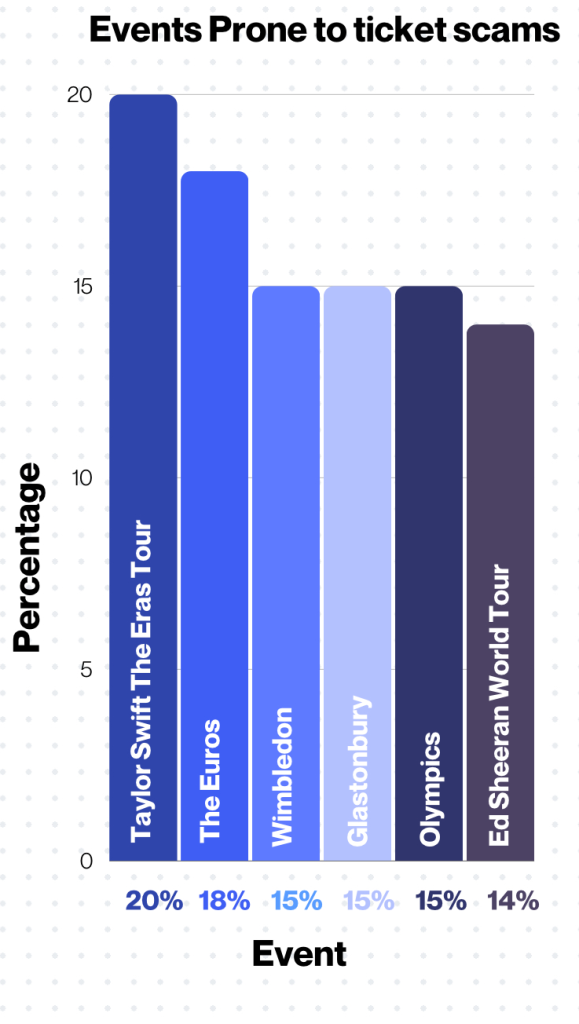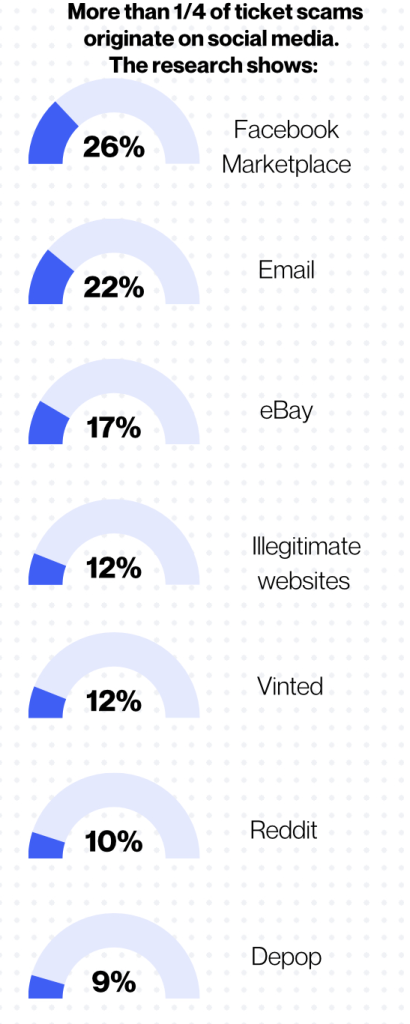One in three young people in the UK have been scammed or know someone who has been scammed when buying event tickets.
With the Euros in full swing, awareness should be brought to ticket scamming, and how to avoid it if sports fans want to make sure they score a good time.
Nationwide research shows 37% of people aged 16-34 have bought a ticket to an event that turned out to be fake or know someone who’s been targeted.
Sadly, nearly half of people say it’s inevitable that they will be a victim of fraud or a scam.
Nationwide’s data shows that for the first five months of 2024, 51% of all scams have been purchase scams, with consumers losing nearly £400.
Young people are prone to being targets with events like Taylor Swift’s Eras Tour happening currently, drawing fans desperate to find tickets to the sold-out shows.
But, how do you know if you’re vulnerable to a scam and how can you avoid it?
A poll of 2,000 people from across the UK shows which events were the most prone to ticket scams.

If you’re looking for tickets to these events or events like this, then being extra careful before buying is key. Here are some top tips for avoiding scams:
- Using official websites, like Ticketmaster, LiveNation, Seetickets, AXS etc. You can always fact check a website’s safety by looking at reviews on google or social media.
If you’re buying resale tickets on social media, being extra careful is necessary as according to Nationwide’s research, social media is one of the highest reasons for ticket scams.

- Paying by debit or credit card offers more protection in case of a scam compared to bank transfer.
- Check how the tickets are officially being sold by the venue, event organiser or promoter and also check these places to see if the tickets can be resold at all.
- You should always look for the padlock symbol in the corner of the URL bar to make sure the website is secure, along with keeping watch of any strange URL changes.





Join the discussion